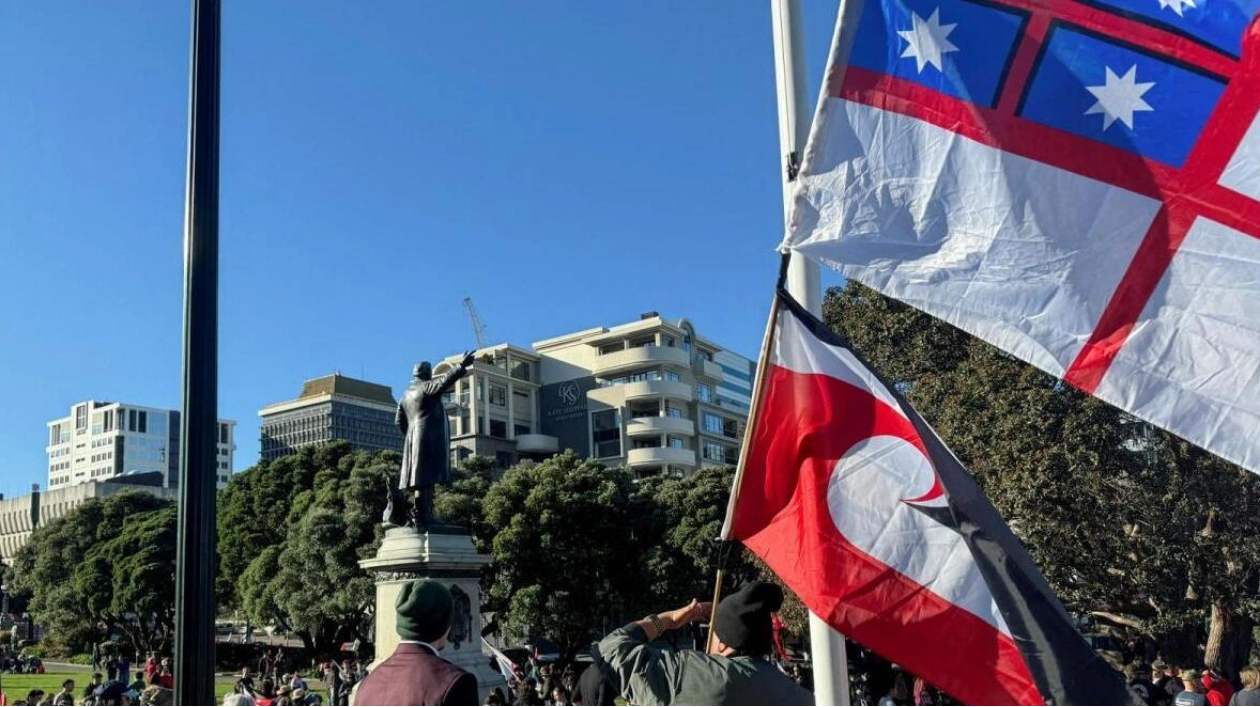Protesters assembled outside New Zealand's parliament buildings in Wellington earlier this year to voice their opposition against policies perceived as discriminatory towards Indigenous Maori. The gathering was documented in a Reuters File Photo.
On Thursday, a proposal to reinterpret a centuries-old treaty between New Zealand's Indigenous Maori and European settlers was presented in parliament, causing unease despite its low likelihood of becoming law. A bill, introduced by a minor party within the coalition government, aims to redefine the Treaty of Waitangi, considered New Zealand's foundational document. Signed in 1840, the treaty brought peace between 540 Maori chiefs and British forces, marking the establishment of New Zealand as a colony. Its principles currently serve to promote partnership between Indigenous and non-Indigenous New Zealanders and safeguard the interests of the Maori community. The anniversary of the treaty's signing remains a national holiday.
However, a bill proposed by David Seymour's libertarian ACT party seeks to more narrowly interpret the treaty's principles in legal contexts. Critics argue that the true intent is to dismantle education and other programs for Maori citizens, sow division among New Zealanders, and fuel identity politics. The initiative is almost certain to fail. Conservative Prime Minister Christopher Luxon has permitted the bill to reach parliament as part of the coalition agreement, but his party is unlikely to support its passage. The Labour opposition has denounced the effort as 'divisive' and 'a waste of money,' lacking support from any other party in parliament. Maori Party co-leader Rawiri Waititi accused the government of 'waging war on our existence as Maori and on the fabric of this nation.'
Source link: https://www.khaleejtimes.com






